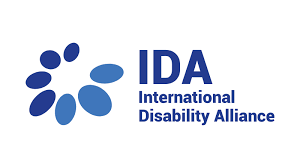
https://www.internationaldisabilityalliance.org/blog/international-disab...
From January this year the International Disability Alliance (IDA) has actively engaged in the Summit of the Future process, including negotiations on the Pact for the Future, calling for meaningful inclusion of persons with disabilities through their representative organizations. We were very disappointed that the Zero draft of the Pact released in January did not have a single reference to persons with disabilities. As we reach the end of the process, we are pleased that our sustained advocacy and principled negotiating positions of member States has resulted in a draft that refers to persons with disabilities throughout the text covering a range of key issues and priorities.
The third revision of the Pact was released yesterday represents a significant step towards the inclusion of persons with disabilities. The International Disability Alliance commends the inclusion of specific references to persons with disabilities and reflecting commitments under the Convention on the Rights of Persons with Disabilities (CRPD) and the 2023 Political Declaration of the High-Level Forum on Sustainable Development. The Pact acknowledges the need to address discrimnination and exclusion faced by persons with disabilities in all facets of life, from the disproportionate impact of armed conflict to barriers in political participation and technological innovation. Additionally, it highlights the need for inclusive education, assistive technologies, and the importance of disability inclusion within the United Nations.
However, the Pact falls short of addressing the systemic marginalization that perpetuates the exclusion of persons with disabilities. While the document frequently addresses the concept of "vulnerability" but notably omits discussions on "marginalization." This distinction is critical. Vulnerability often implies a passive state of being—a condition that people find themselves in due to various external factors. In contrast, marginalization is an active process of exclusion driven by systemic barriers, discriminatory policies, and social stigma. This approach overlooks the societal barriers—like inaccessible infrastructure, discriminatory practices, and exclusionary policies—that create and maintain marginalization.
IDA calls on all stakeholders—Member States, UN agencies, civil society, and others—to translate the commitments outlined in the Pact for the Future into concrete actions. This includes prioritizing the full participation of persons with disabilities in peacebuilding, political processes, and the development of new technologies. It also means ensuring that the United Nations and other international bodies are fully accessible and inclusive.
Read more on the most recent version of the Pact here.









